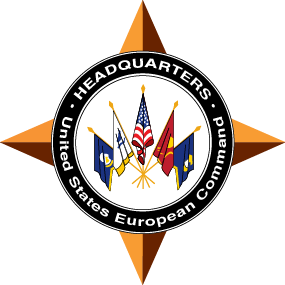
What happened?
Speakers at the Friends of Europe policy insight event, entitled ‘Dealing with far-right radicalisation and disinformation’, on 12 September proposed several solutions to combatting an issue that has increased exponentially since the COVID-19 pandemic.
“If the internet suddenly disappeared, would right-wing radical groups still exist in any significant form?” asked moderator Jamie Shea, Senior Fellow for Peace, Security and Defence at Friends of Europe and former Deputy Assistant Secretary General for emerging security challenges at NATO.
“Over the past decade we [have] seen a wholesale transformation in the extremist ecosystem and threat,” explained Sasha Havlicek, Co-Founder and CEO of the Institute for Strategic Dialogue.
“What were once disparate parochial grouplets have transformed into transnational, tech-savvy, large-scale, online subcultures able to effectively translate digital mobilisation into offline action, often coordinating around common political objectives,” she explained.
This is not just a problem with disinformation, according to Maria Muñiz de Urquiza, Political Advisor for the Socialists & Democrats Group in the Special Committee on Foreign Interference in all Democratic Processes in the European Union, including Disinformation of the European Parliament.
“It is a problem of the impoverished middle class who are afraid of what is happening regarding the economic crisis and democratic institutions,” she explained.
“Extreme-right groups take advantage of that to disinform and launch messages that damage democracy and institutions,” she said. “We need a solution for the deep roots of the crisis.”
Fadi Quran, Campaign Director at Avaaz and 2017 MENA Young Leader, offered up solutions. “We need to ensure that social media platforms engage fairly across any actor that spreads disinformation and ensure that the policies imposed on far-right and far-left actors are equal,” he said.
Quran also called for social media platforms to “open up their black boxes of social media algorithms” to disrupt and remove users from the “bubble of narratives”. “This is about redesigning the architecture of social media,” he concluded.
Rita Schwarzelühr-Sutter, German Parliamentary State Secretary at the Federal Ministry of the Interior and Community, emphasised the importance of political education. “Different companies and authorities must be alerted to relevant disinformation and assess them quickly,” she said.
About
Far-right radicalisation is often enabled through disinformation campaigns circulating distrust towards states and institutions, adding fuel to existing crises and targeting disenfranchised citizens. The evolution of social media platforms as a means to disseminate information has enhanced the influence of these campaigns. Combined with a major crisis or upheaval, this is the perfect storm, allowing certain actors to exploit fear, anger and confusion to advance their own agendas and contribute to the growth of far-right radicalisation.
Most far-right radicalisation in the West is based on the narrative of a long-dominant white population’s fear of losing their place in the middle class or losing their majority status as Europe and North America become more racially diverse. During the worst days of the COVID-19 pandemic, the link between far-right groups and conspiracy theories became obvious. Social media is the most effective tool for spreading disinformation, planning and financing events, and recruiting and radicalising people by stoking fear and developing common ground – even if the initial contact is not directly related to far-right ideology. Radicalisation develops gradually from sympathy for right-wing ideas into more active participation. Disinformation campaigns aim at establishing a broad base of sympathisers, creating a community to justify radical ideas. Simple, causal explanations for complex issues can be employed, generalising personal experiences and often scapegoating migrants or other minorities.
Countering violent extremism goes hand in hand with discrediting disinformation. However, governments and institutions lack power over the social media conglomerates with the power to monitor information. Governments are in urgent need of new and creative ways to tackle disinformation campaigns and combat radicalisation at every stage. If they are unsuccessful, the emergence of new technologies like artificial intelligence (AI) has the potential to stoke even more fear and anger.
This event will take place on an online platform upon registration and will also be available to a wider audience via livestream. Follow us on Twitter, LinkedIn, Instagram or Facebook, and join the #FoEDebate discussion!
Related Content
Our events include photos, audio and video recording that we might use for promotional purposes. By registering, you give your permission to use your image. Should you have any questions, please contact us.
PHOTO CREDIT: Photo by Mark Jones on Unsplash
Schedule
Questions include:
- What are some examples of best practices from civil society and the private sector to counter disinformation campaigns and prevent radicalisation, and how can EU institutions and member states better cooperate with them?
- How can the EU counter conspiracy theories effectively and stop far-right groups from using them as a recruitment and radicalisation tool?
- How can digitalisation enhance democratic engagement so that people feel more empowered and deliver off-ramps for the different stages of the radicalisation process?
Moderator
Jamie Shea
Senior Fellow for Peace, Security and Defence at Friends of Europe, and former Deputy Assistant Secretary General for Emerging Security Challenges at the North Atlantic Treaty Organization (NATO)
speakers
Sasha Havlicek
Co-founder and CEO of the Institute for Strategic Dialogue (ISD)
Maria Muñiz de Urquiza
Political Advisor for the Socialists & Democrats Group in the European Parliament Special Committee on Foreign Interference in all Democratic Processes in the European Union, including Disinformation
Fadi Quran
Campaign Director at Avaaz and 2017 MENA Young Leader
Rita Schwarzelühr-Sutter
German Parliamentary State Secretary at the Federal Ministry of the Interior and Community
Speakers

Co-founder and CEO of the Institute for Strategic Dialogue (ISD)
As ISD’s founding CEO, Sasha Havlicek leads the organisation’s pioneering programmes, advising governments and working with businesses and civil society to deliver solutions to conflict, extremism and terrorism. She has spearheaded the largest global network of former extremists (AVE) in partnership with Google’s Jigsaw; the Strong Cities Network, the first global counter-extremism cities network; and the Innovation Hub, a partnership with Facebook, Google and Twitter to counter extremists’ online efforts. She recently launched with Sheryl Sandberg the Online Civil Courage Initiative, aimed at challenging hate speech and extremism online.

Political Advisor for the Socialists & Democrats Group in the European Parliament Special Committee on Foreign Interference in all Democratic Processes in the European Union, including Disinformation
Maria Muñiz de Urquiza currently works as a Political Advisor for the Socialists & Democrats (S&D) Group in the European Parliament Special Committee on Foreign Interferences in all Democratic Processes in the European Union, including Disinformation. She previously served as the head of cabinet of the Spanish Secretary of State for Regional Policy, prior to which she was a diplomatic advisor in the cabinet of the President of the S&D Group. A former member of the European Parliament, Muñiz de Urquiza has also worked as a political advisor to the S&D working group on extremism.

Campaign Director at Avaaz and 2017 MENA Young Leader
Fadi Quran is a leading figure in Palestine, committed to achieving freedom, justice and dignity for the Palestinian people. As Campaign Director at Avaaz, a global online civic movement, he is responsible for the organisation’s campaigning and investigative efforts on issues including human rights, democracy, poverty and conflict. His leadership has helped push for legislation on Big Tech and he has featured in The New York Times, The Washington Post and BBC, among other news outlets. Fadi is a community organiser for Popular Struggle, a policy member of the Al-Shabaka Palestinian Policy Network and a former United Nations advocacy officer. In addition to his work in advocacy and international law, Fadi is also a renewable energy entrepreneur in MENA, with a focus on shifting the region away from fossil fuels. He has founded two companies, bringing wind and solar energy power to Palestine and other countries in the region.

German Parliamentary State Secretary at the Federal Ministry of the Interior and Community
Rita Schwarzelühr-Sutter has served as a Member of the German Bundestag for over 15 years throughout her career. In her current role as Parliamentary State Secretary, she supports the interior ministry’s priority to fight against right-wing radicalisation, violence and extremism. Previously, Schwarzelühr-Sutter served as the parliamentary state secretary at the Federal Ministry for the Environment, Nature Conservation, Building and Nuclear Safety.
Partners
Activities
Three years of courage: navigating Ukraine’s future and the road to peace
Past event Online

- Area of Expertise
- Peace, Security & Defence
Discussion on the EU priorities for Ukraine's support
Past event In person

- Area of Expertise
- Peace, Security & Defence
EU-Western Balkans Summit: a renewed approach to the region
Past event In Person & Livestreamed

- Area of Expertise
- Peace, Security & Defence
NATO at 75 – implications for Europe and Ukraine
Past event Online

- Area of Expertise
- Peace, Security & Defence
Trump hasn't left NATO, instead he's trashed it
- Category
- Frankly Speaking
- Author
- By Giles Merritt
Ukraine: the art of the deal – Is Europe in?
- Category
- #CriticalThinking
- Author
- By Michael Ryan & Valbona Zeneli
Do not normalise the war: commemorating three years of Ukrainian courage
- Category
- News
- Area of Expertise
- Peace, Security & Defence
Russian war economy: going up before going down?
- Category
- #CriticalThinking
- Author
- By Cyril Tregub

- Area of Expertise
- Peace, Security & Defence

- Area of Expertise
- Peace, Security & Defence

- Area of Expertise
- Peace, Security & Defence

- Area of Expertise
- Peace, Security & Defence
Continue
the debate on
- Debating Europe



